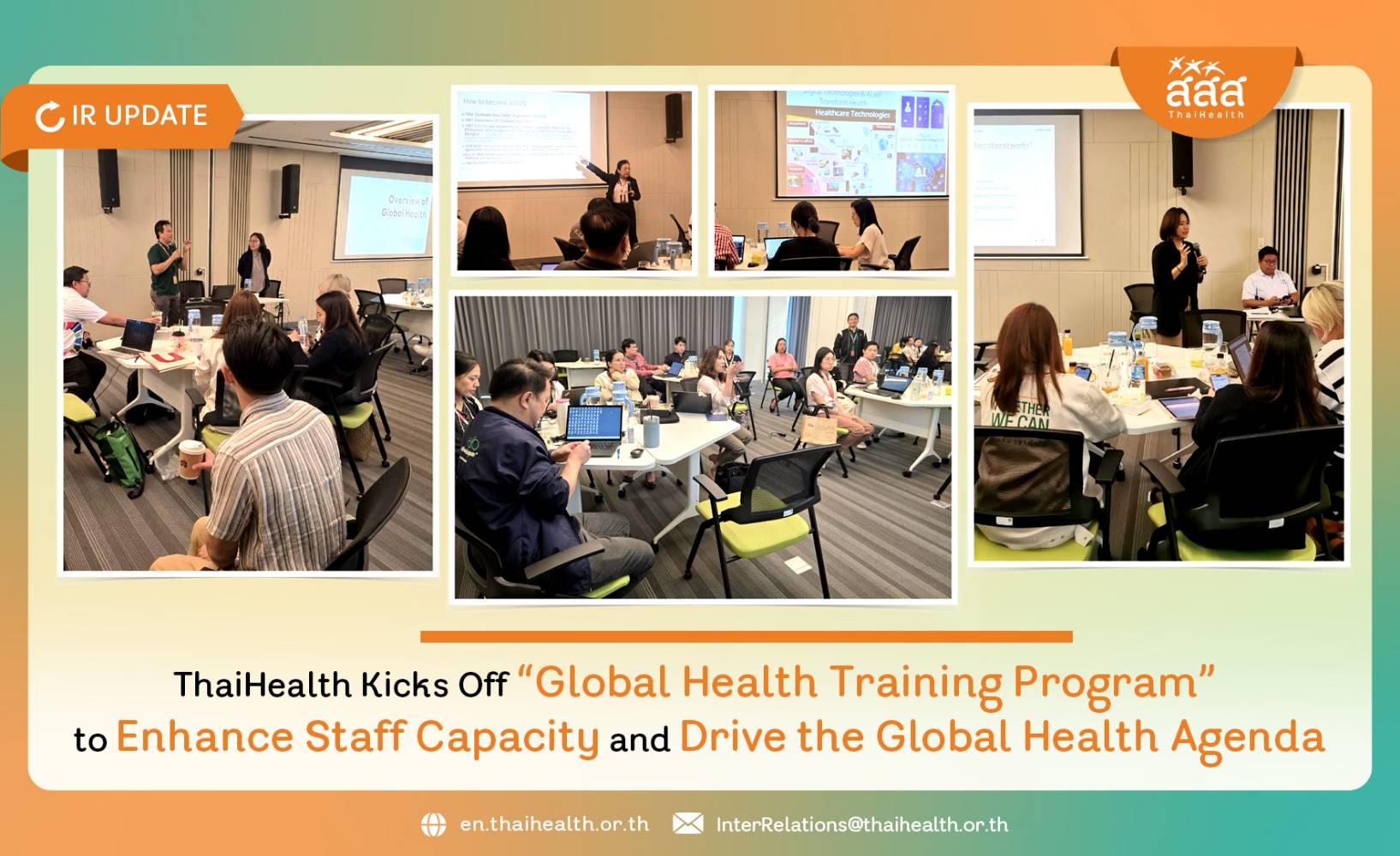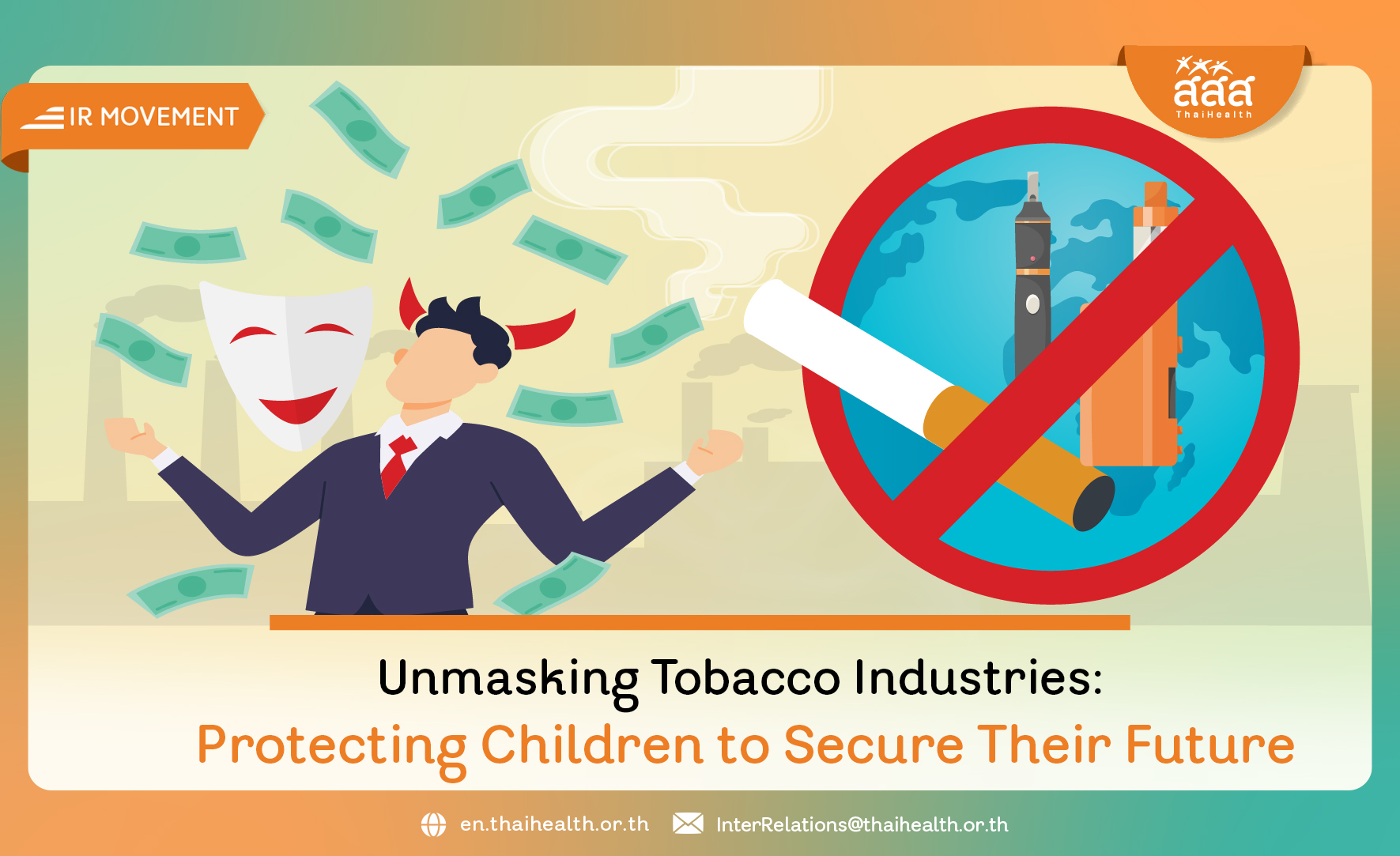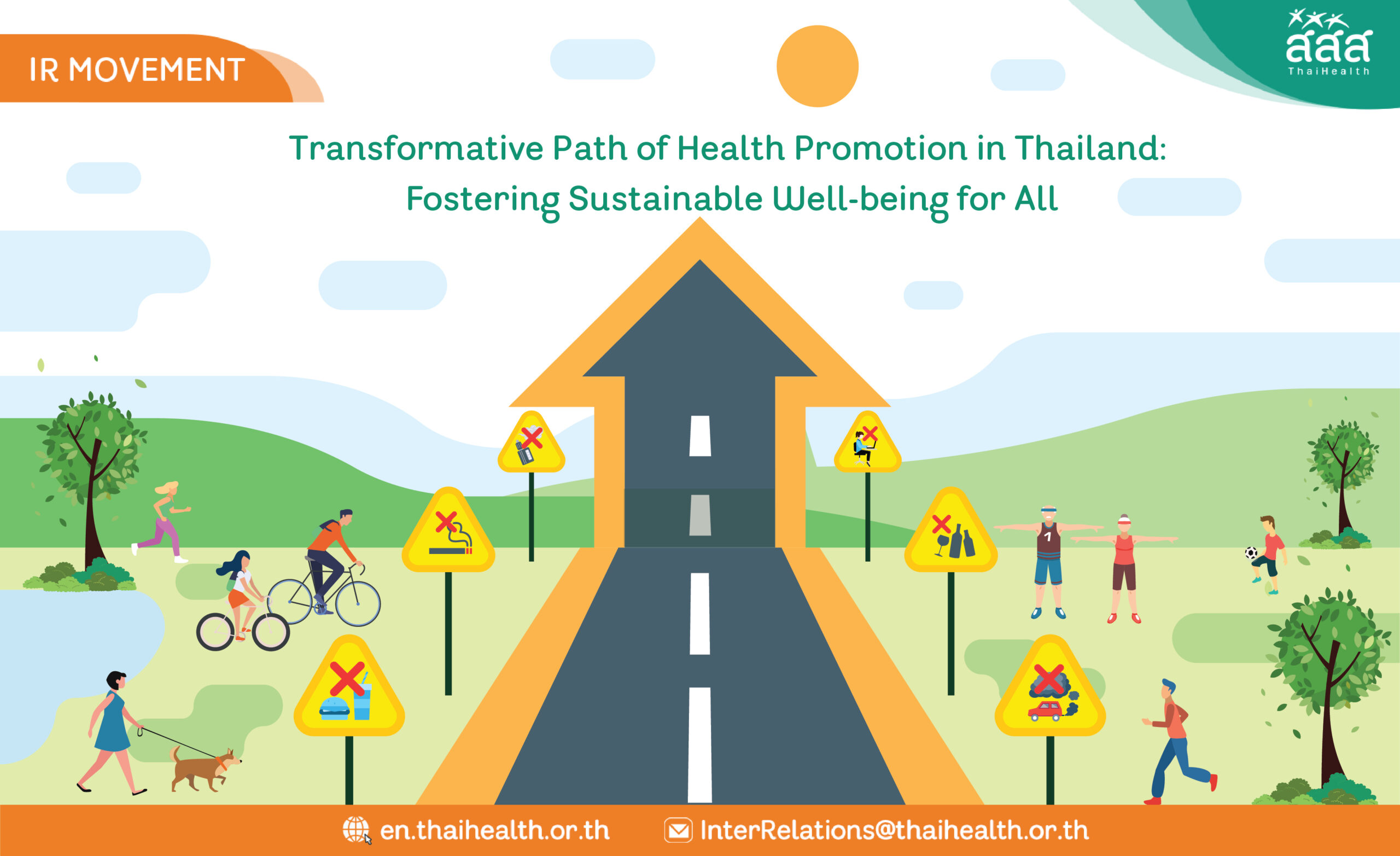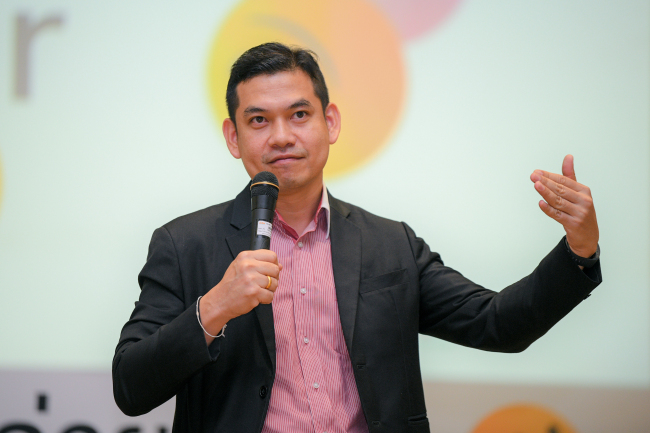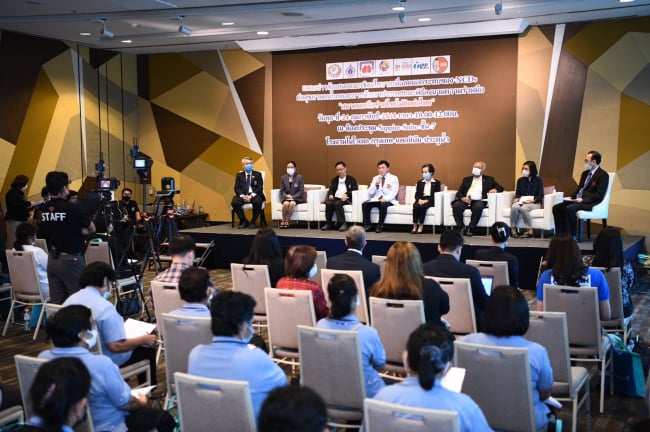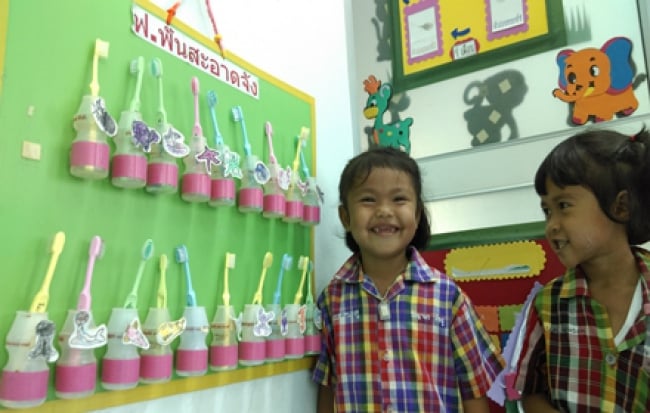
ThaiHealth investment in youth projects create seven-fold return to the society, TDRI analysis finds
The society is being puzzled on the public scrutiny that Thai Health Promotion Foundation is now under, following groundless accusations about ThaiHealth’s misuse of budgets. But on the other side of the puzzle, Thailand Development Research Institute (TDRI), has been asked by ThaiHealth to analyse the profitable returns to the society from projects equally funded by ThaiHealth and Rockefeller Foundation.
The health issues are so large and wide that they overlap the circle of society. Obviously, health is also one of the society’s important issues. Now, the analysis has found that every 1 baht from the youth projects sponsored by ThaiHealth gives a seven-fold return to the society. Why is it so rewarding?
It has been found that the projects relevant to youngsters sponsored by ThaiHealth have had more or less a great impact on the youth, parents, teachers, and people in the communities. Signed-up members of ThaiHealth youth projects have been found to improved their consumption of food and physical activities. While parents have been found to be happier about their children spending more quality time. The communities have had more participation in children’s activities, while youngsters themselves have been educated more about their local traditions and cultures, including health-improvement activities such as physical exercises at schools, growing vegetables for local consumption, cycling in and around their communities to learn about their local temples, helping in the making of informative media about locally-found knowledge. These activities do not only create better physical health, but also mental health among the members, as well as relationships between family members, community members, and at school.
It could be said that this is the example of the “Health Promotion” effort according to Article 3 of the Health Promotion Act, whose definition is interpreted as the promotion of physical and mental health to people by supporting certain human behaviours, societal condition, and environment that lead to good health, good mind, long life, and good quality of life. The assessment of the return to the society has indicated that the aforementioned health promotion in that particular meaning is not so abstract, because it can be evaluated in terms of investment and return. This method of assessment, modeled from those in the United States and the United Kingdom, has been successfully conducted in many countries of the world.
Every 1 baht, the food-related projects create 13-fold returns to the society; the elderly- and disabled-related projects create 1.2- and 3-fold returns to the society; the consumer protection-related projects create 86-fold returns to the society.
The reason why the consumer protection-related projects are giving such high returns to the society is because there are a large number of people who are directly affected by the consumer protection issues. Starting from a discovery of toxic contaminants in school-provided drinking water. According to foreign researches, if children are exposed to exceeding amount of lead in drinking water, their brain development is affected permanently – in terms of intelligence and behaviours. In a response to the finding, the Office of the Basic Education Commission has discontinued the purchase of lead-contaminated water coolers and replaced them all with safer water coolers.
The projects have also produced many more changes to the society in terms of consumer protection. These changes have directly affected many children, their parents, and teachers. They are all pleased to know that the youngsters will from now on have good health.
These profitable returns to the society have not been achieved by ThaiHealth alone. Close collaboration with other organisations such as Office of the Basic Education Commission, Ministry of Industry, Public Health Ministry’s Department of Medical Sciences, Local Administrative Offices, and Office of the Consumer Protection Board, have played their part to help generate such high returns to the society. Without the management expertise of ThaiHealth, many projects would have not been concluded. One of the examples is the project to support learning of swimming in rural schools which was launched to reduce the death rate of children drowning. ThaiHealth has initiated this project to support the learning of swimming in schools where there is no swimming pool, to let them travel to local swimming pools to learn how to swim.
Another example is ThaiHealth’s financial support in purchasing more sport equipment for schools for their sports day activities. It could be viewed that sports day activities are the activities that have already been there at schools for a long time, but ThaiHealth has enabled many schools to organise more sport activities just like in schools in major cities.
These kinds of projects would have been very difficult to conclude under the conventional government budgeting system. Most of ThaiHealth’s projects are considered proactive, initiated to fill in the gaps where the conventional budgeting cannot fulfil. Most importantly, every ThaiHealth project is relevant to the good health of all Thai people in the broader meaning rather than in a limited sense of physical health, tobacco or alcohol controls.
Inevitably, the work of health promotion by ThaiHealth’s centralisation standard needs the helping hand of the members of the press in amplifying the campaign just like in any other countries. The press and campaigns are the key to the adjustment of human behaviours. Even the Medical Council of Thailand realises this necessity to educate the press, as seen in the recent ThaiHealth-sponsored Issara Foundation’s workshop where Air Vice Marshal Dr Ittiporn Khanacharoen joined in the band of experts to plough the seeds of knowledge to members of the press.
After the disclosure of such information, you may wonder if TDRI has also been funded by ThaiHealth.
The answer is, in the past, even though TDRI had received research funds from the National Health Security Office (NHSO), the Social Security Office (SSO), Office of the National Broadcasting and Telecommunications Commission (NBTC), or other organisations, TDRI has been seen honestly criticise the operation and performance of these organisations based on the public benefits. ThaiHealth has once been criticised and urged to keep systematic logs of information to let the society know whether or not ThaiHealth’s work really had an impact as set by the target, and whether or not the effort is worth the taxpayers’ money. It also suggested that ThaiHealth to put more efforts in educating the public about health issues, otherwise, wrong understandings about good health would remain in the Thai society for a very long time.
Have we had in the past any ThaiHealth-sponsored projects ended up in failure? We know that we have had a few. Those few projects, obviously, never passed second approval.
“ThaiHealth’s scrutiny is as serious as in any other government organisations, sometimes even more serious. Some of them involve an audit from external auditors. If it was a big project, the assessment must be conducted by external organisation, with clear selection criteria and information disclosure. However, ThaiHealth still has some visible weaknesses that should be adjusted for better performance. On the other side, the society also has a duty to offer creative comments so that ThaiHealth will use these comments to improve its work.”
For the past 14 years, the statistics indicate that there have been so many positive changes in the effort to upgrade the quality of health of Thai people, with praises from many countries for ThaiHealth’s proactive stance. Furthermore, many foreign organisations come to learn from ThaiHealth.
Now that Thailand, being a role model and a point of reference on the international level for the proactive health promotion effort in this fast-pacing world, had to stop its proactive activities, it is not different from walking backward. We, as an organisation, shall try harder on our proactive activities to build the strong foundation for our later generations.
rn


